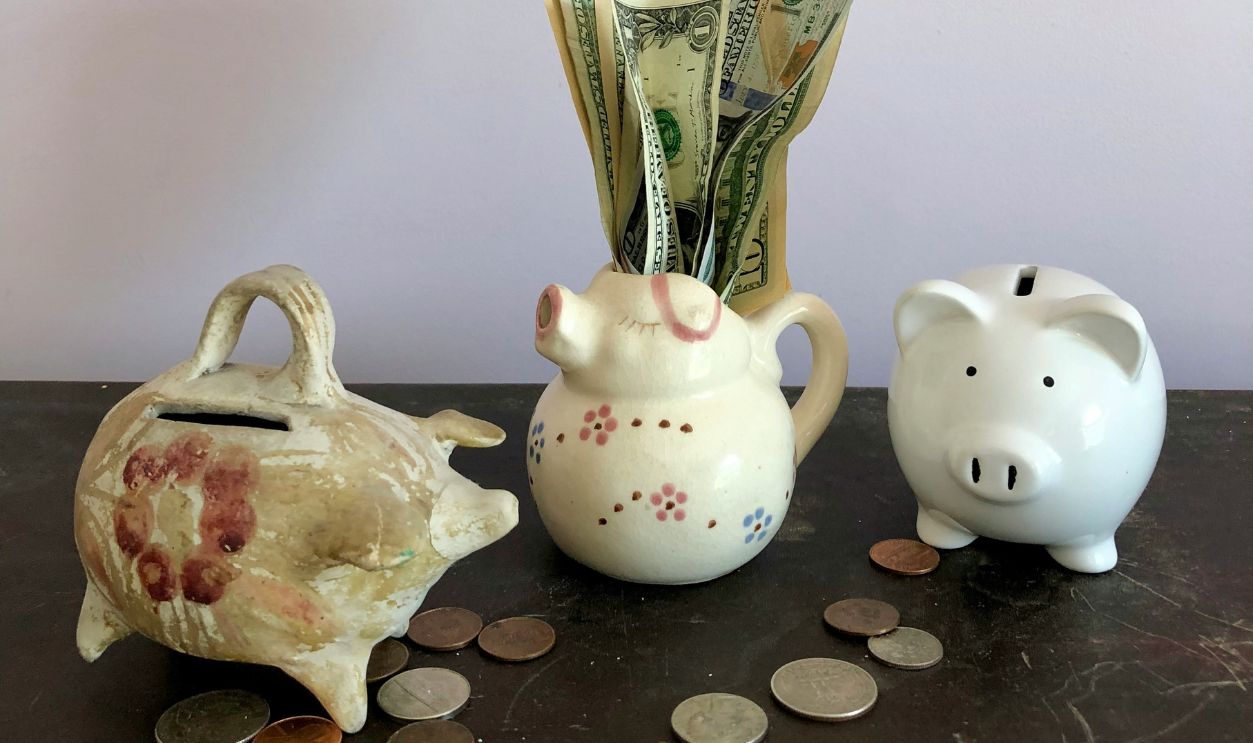I've Just Received A Large Inheritance. What Now?
Imagine you're broke, struggling to make ends meet and then suddenly, a distant relative passes away and you're left with a $40,000 inheritance in your name. You have student loans still, a car loan and many other payments. Do you pay those off first? Or put it all in the bank as an emergency fund? Let's explore your options when presented with a unique opportunity to set yourself up for life.

Understand The Nature Of The Inheritance
If you knew the person who passed away, there may have been conversations about what was to be done with your inheritance. Or, perhaps the money was placed in a trust for you. Consider how the inheritance was understood to be used and what the person who left it to you would rather you do with it.
Check For Immediate Tax Implications
In most states, inherited cash isn't taxable as income, but check if any portion is subject to estate or inheritance taxes. Also, if you inherited investment assets, be aware of potential capital gains tax if you sell them. When in doubt, consult a tax advisor.
Build Or Replenish An Emergency Fund
Do you have 3–6 months’ worth of essential expenses saved? Emergency funds are a critical part of a secure financial future. If you don't have an emergency fund, setting aside a portion of your inheritance for that purpose should be your first priority.
Review The Terms of Your Student Loans
Take a close look at your student loans. Targeting these loans first should be your next priority, as not only are they typically high-interest, but you can't declare bankruptcy and wipe them out. Pay these off as a priority with your inherited money.
Know The Emotional Value Of Being Debt-Free
For some, paying off debt brings peace of mind and emotional relief that far outweighs any financial gain from investing. If your student loans feel like a psychological burden, using the inheritance to eliminate or reduce them might be the best decision for you.
Compare Interest Rates To Investment Returns
If your loans have a 7% interest rate and you expect to earn 6% from investing, it makes more sense to pay off the loan. Even if you want to invest your money right away, you'll have more money to invest if you pay off your high-interest loans first. Use the Debt Snowball Method to assess which loans to prioritize.
Consider Splitting Up Your Inheritance Between Obligations & Fun Money
Splitting up your windfall may be a great option here. You don't have to throw all your money into one basket—and you probably shouldn't. For example, putting $15K toward student loans, $15K into investments, and $10K into savings. This approach can help you grow wealth, reduce debt, and maintain flexibility at the same time.
Evaluate Your Job & Income Stability
Is your job secure, or are layoffs a possibility? If you're either self-employed, or in a job with the potential to be laid off, then it's probably more important that you prioritize a large emergency fund and debt payments, than investing and "fun money."
Do You Have High-Interest Debt?
If you’re carrying credit card debt, personal loans, or other obligations with double-digit interest rates, those should usually take priority. Pay those off before focusing on lower-interest student loans or long-term investments. It’s the equivalent of getting a guaranteed return.
Consider Upcoming Major Expenses
Do you anticipate needing money for a wedding, car, home, or relocation in the next 1–3 years? If so, parking some of the inheritance in a high-yield savings account or CD can ensure it’s there when you need it—without locking it away or risking losses.
Investing Can Build Long-Term Wealth
If you have a solid emergency fund and manageable debt, investing is a smart way to grow your inheritance. Options include stocks, ETFs, or a Roth IRA if you qualify. Compounding returns over time can turn that $40K into a sizable nest egg for retirement or other life goals.
Don’t Invest Money You’ll Need Soon
The stock market is volatile in the short term. If you might need the funds within 3–5 years, avoid putting all your inheritance in stocks. For short-term needs, safer vehicles like high-yield savings accounts, money market funds, or short-term bonds are better.
Think About Retirement Savings
Are you behind on retirement? A windfall is a chance to catch up. Maxing out your IRA or contributing to a 401(k) if your employer allows lump-sum contributions can set you up for long-term security. The earlier you invest, the more time your money has to grow.
Explore 529 Plans Or Future Education Goals
Planning to go back to school—or help someone else? You could allocate part of your inheritance to a 529 plan, which offers tax advantages when used for education expenses. It’s a thoughtful way to support long-term personal or family goals.
Protect The Inheritance From Temptation
Avoid impulsive purchases. Keep the money in a separate account while you consider your options. This pause creates mental distance from the windfall and reduces the urge to spend emotionally or recklessly.
Which Account Should You Keep Your Inheritance In?
There are many different options when it comes to bank accounts to keep large sums of money in. Generally, you want to avoid accounts where the money is placed in a volatile situation, such as an investment account. Equally, you want to have some of the money be liquid. A redeemable Certificate of Deposit account, or a High Interest Savings Account would be among your best options.
Consult A Financial Planner
A financial planner can help you weigh each option, model scenarios, and create a plan that aligns with your risk tolerance and goals. Even one consultation can save you from costly mistakes and help make the most of your inheritance.
Be Mindful Of Lifestyle Creep
It’s tempting to upgrade your lifestyle when you come into money. But raises and windfalls should improve financial security, not inflate your monthly expenses. Use this opportunity to stabilize your future, not to adopt short-term habits that may become hard to sustain.
Consider The Person Who Left It To You
Was the inheritance meant to make your life easier, or to help you build something lasting? Reflect on what the person who left you the money might have wanted it to do for you. Sometimes that emotional insight helps clarify how to use it wisely.
Make A Plan—Then Take Action
After exploring your options, write down a clear plan: how much will go toward loans, investments, savings, or other priorities. Having a strategy in place helps you move forward confidently—and avoid second-guessing or indecision that leaves money sitting idle.
 Glenn Carstens-Peters, Unsplash
Glenn Carstens-Peters, Unsplash
You May Also Like:
America's Biggest—And Most Despicable Class-Action Lawsuits
Coins From The 1960s That Are Worth Big Bucks Today


























